September 28, 2019
Dear Children,
We think it an important lesson to make sure you’re aware of the different types of camping available to you. We’ve done northwoods camping by Minnesota lakes, tent-free camping under stars on beaches, camping on mountaintops around the world, camping in the Savannah sharing the night with wild elephants and lions, camping at Disney World sharing the night with life-sized mice, you name it. I thought we’d know what to expect out of most camping experiences. Then we went camping in Cerró Blanco, Ecuador.
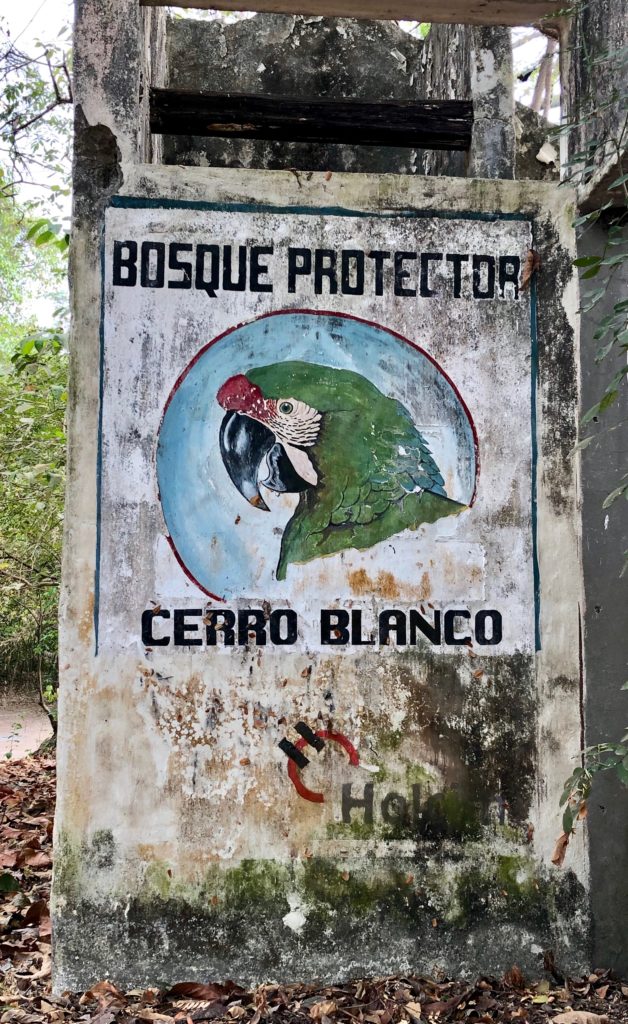
It was something like a shotgun start that never lost its momentum. About twenty families arrived at the campground at three o’clock, at which time we were greeted by the rangers who told everyone to set up their tents and get ready for the first activities. There were already enough warnings that this was not going to be a normal camping trip. We were forced to delay our start because Amani forgot her shoes at home. Thankfully we only live a few miles from the park. After racing home and back, I realized we’d need to hurry because everyone else had their tents up and were waiting for us.
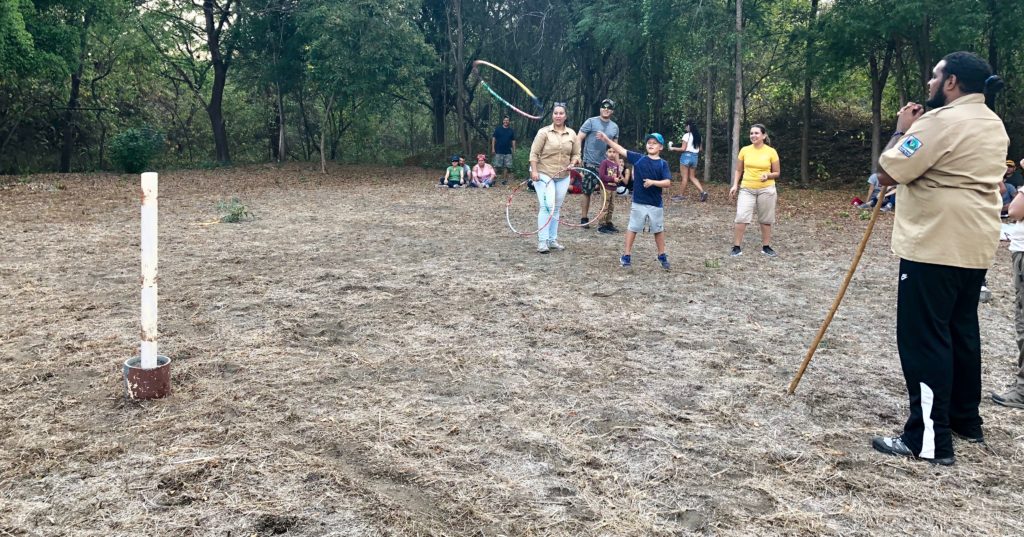
We unpacked our tent and set it up as a form of entertainment for the other families who saw our eight person tent was more of a small lodge than a tent. The big screen room on our chateau could’ve housed three of the others’ tents. Placed in our assigned spot, it spread so tall and wide that it cast shadows on all of the other dwellings in the camp. Anyone passing by our tent community would have to conclude that our tent was the communal place of worship, situated in the center of the village and clearly designed as a meeting place for everyone at once. He would, of course, be wrong. That architectural wonder was our sleeping quarters. I would’ve liked to explain to the gaping onlookers how indispensible each of the tent’s features were, but they wouldn’t have translated well with my limited Spanish. Besides, the majesty of the Taj Mahal needs no pontification.
After we finished, we were led through the forest to an opening approximately the size of a football field. That’s where things got weird. Everything was in Spanish, so we followed the movements of the others, first forming a big circle and holding hands. Then we began marching in a circle and chanting an incantation. Every once in a while we would stop and touch a different body part to the ground before being directed by the man in the center of the circle to begin our call and response invocation and parade around again.
An inner voice begged me to run. We had found ourselves in the wrong place. Should I tell them that? “Ah, excuse me. We signed up to go on a family camping trip. We’d like to say goodbye and thanks for allowing us to take part in your cult, but we have to get going.” There was no way I could translate that, so we stayed. The ceremonial chanting and dancing intensified, and I was beginning to fear it was going to end soon with us tethered sacrificially to stakes in the center of the circle while the others continued their tribal worship. I tried to warn your mom that we needed to run for it while we had a chance, but while I tried to get her attention, she seemed hypnotized by the chant and was happily licking the ground with the others.
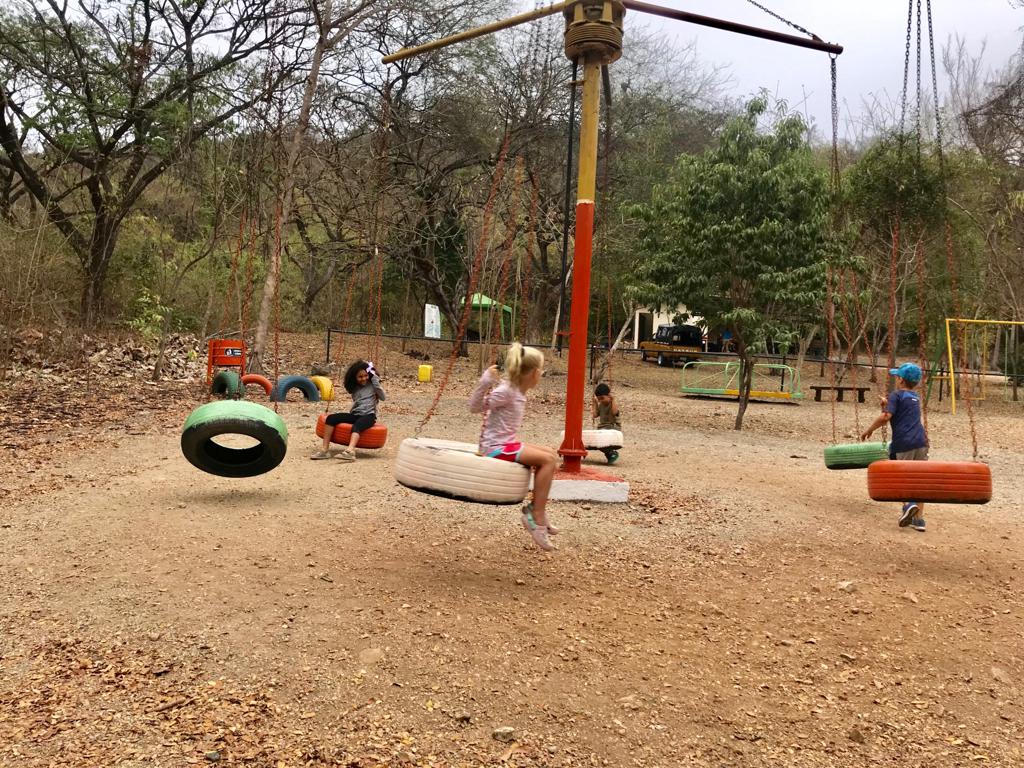
Thankfully they never brought out the stakes, and after our song and dance, we were divided into groups to compete against one another in “cultural games” the likes of which I didn’t know were Ecuadorian. We played games like the egg and spoon race, the potato sack race, and the hula hoop toss. Your mom entered the egg hop, where she had to compete against others, moving plastic eggs from one hula hoop to another that was about 15 yards away, using only her legs to hold the egg. I told Owen, “Mom’s going to win.”
“How do you know?” he wondered.
“Your mom always wins.”
Of course, I was right. She had five eggs in the other hoop before her competitors had four combined. Everyone looked on in awe. I think I heard one family say something like, “How is that foreigner so good at our games?” and another point out, “That’s the woman from the castle.”
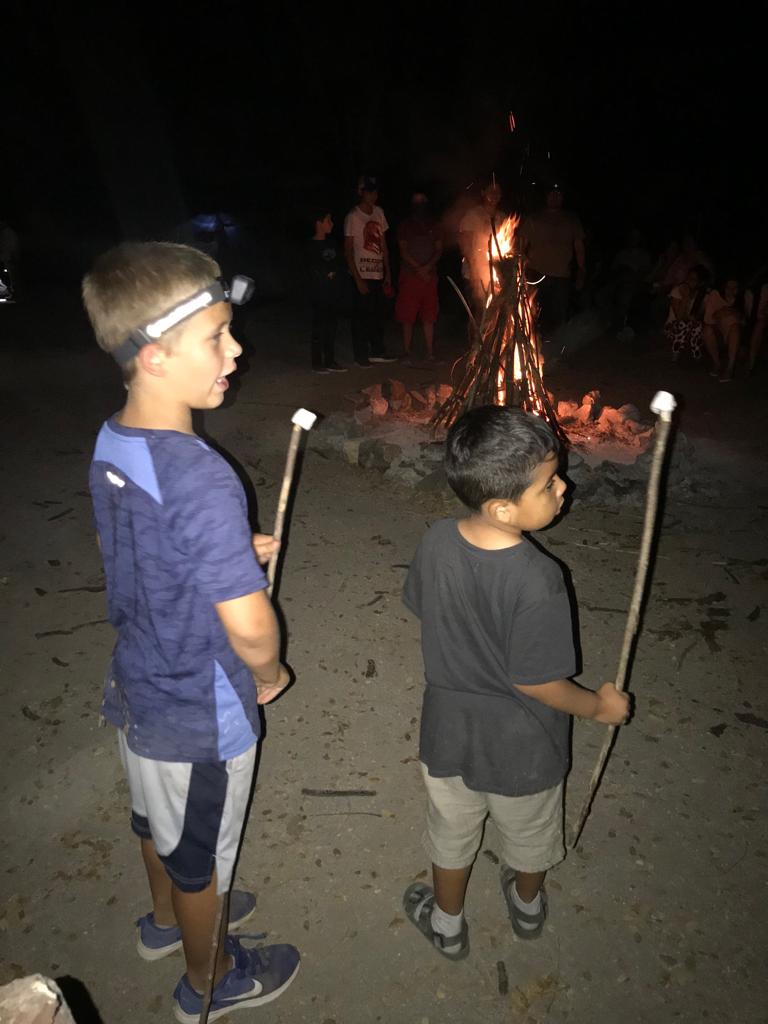
Afterwards we collected firewood and ate dinner. It was a fun little outdoor dining hall where they served grilled chicken, beans, salad, and rice with juice. Then we had a campfire with smores and ghost stories and a night hike.
The next morning we were woken by the ranger who had placed a blaring speaker against the side of our tent. He paced through the camp playing a lively Spanish song on full volume. Determinedly, he spent a lot of time next to our tent, possibly worried that because of the tent’s size, his music may not have the capacity to penetrate its nylon walls. He needn’t have worried, however, we were already up making the most of the unexpected circumstances.
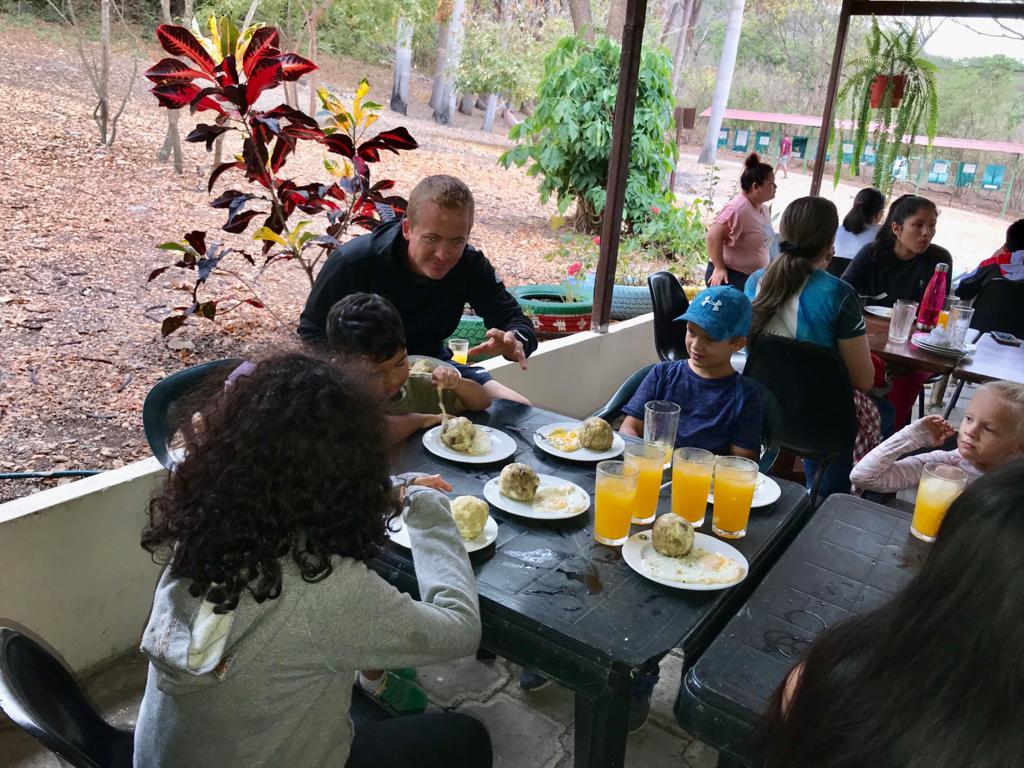
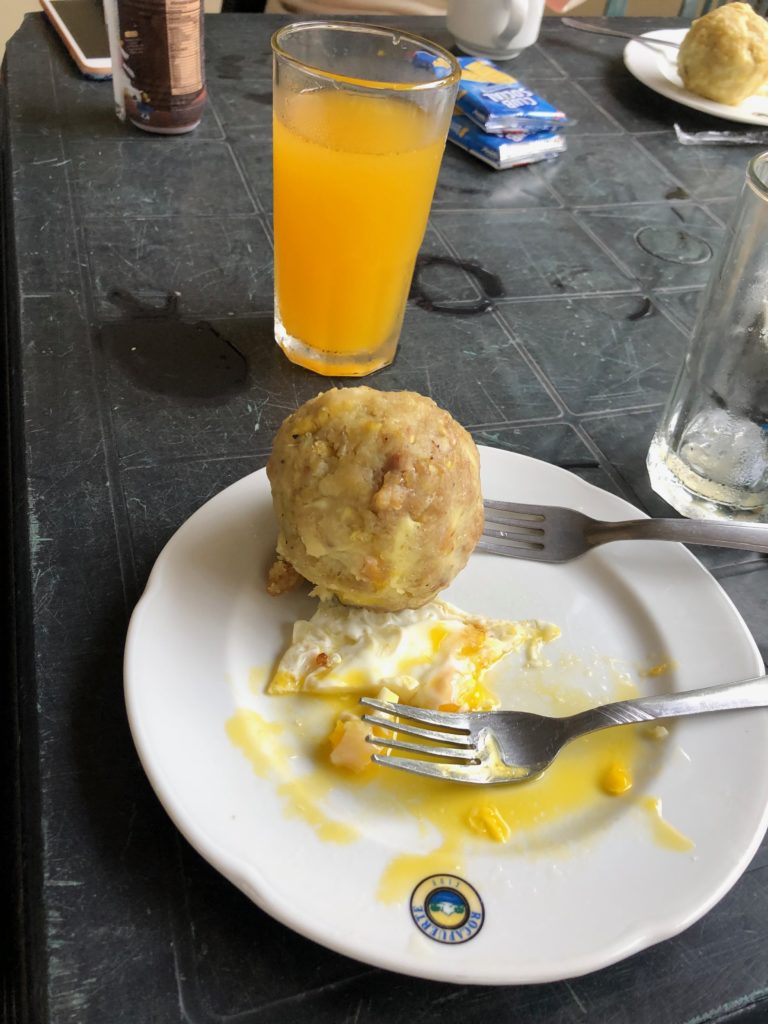
We were served breakfast of bolon an egg and juice. Owen, you stared for awhile at the ball of plantain with chunks of meat in it. Then you took a bite, swallowed it with an audible gulp and asked, “Dad, have you ever just lost your appetite all of a sudden?” I admitted I had, every time I’m served bolon.
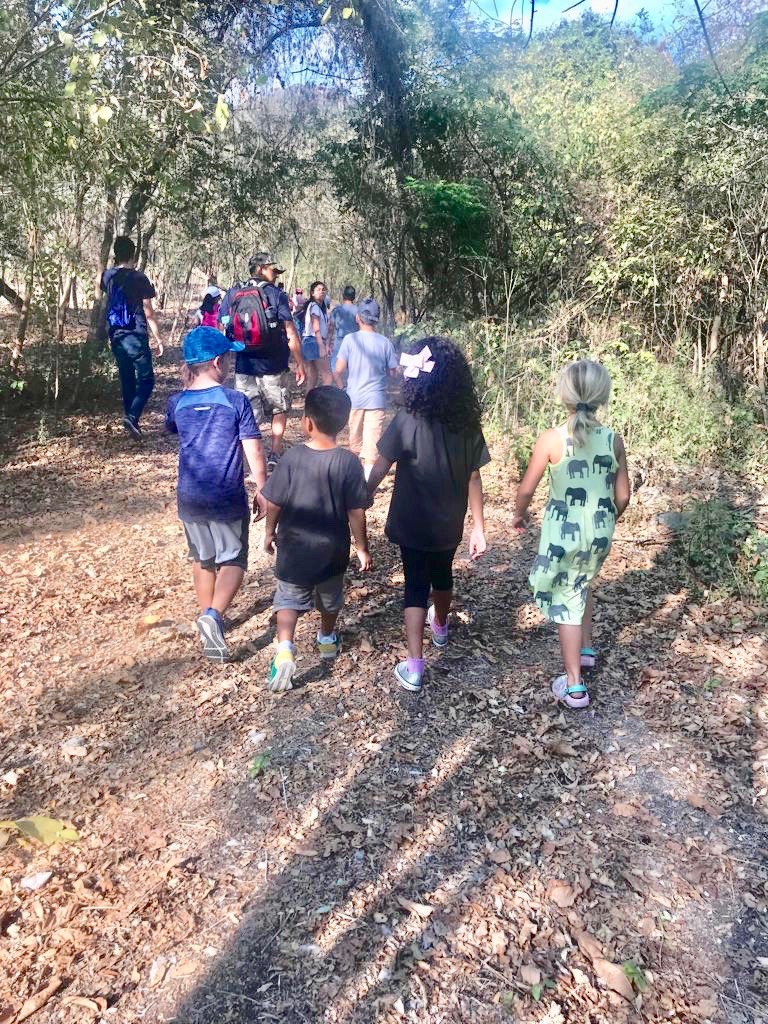
Afterward, we were taken on a hike to the top of the small mountain that rose a thousand feet behind us. Prior to departing, they kept trying to tell us that the hike wasn’t meant for kids and that we could stay back and play more games instead. I realized that they weren’t going to spare us from the stakes the second time around, so I insisted that we go on the trip and told them I would carry the kids up and down if I had to. I had to. Amani walked about thirty or so feet of the journey and then demanded to be carried the rest of the way. Owen made it the entire hike, one that was quite steep at times.
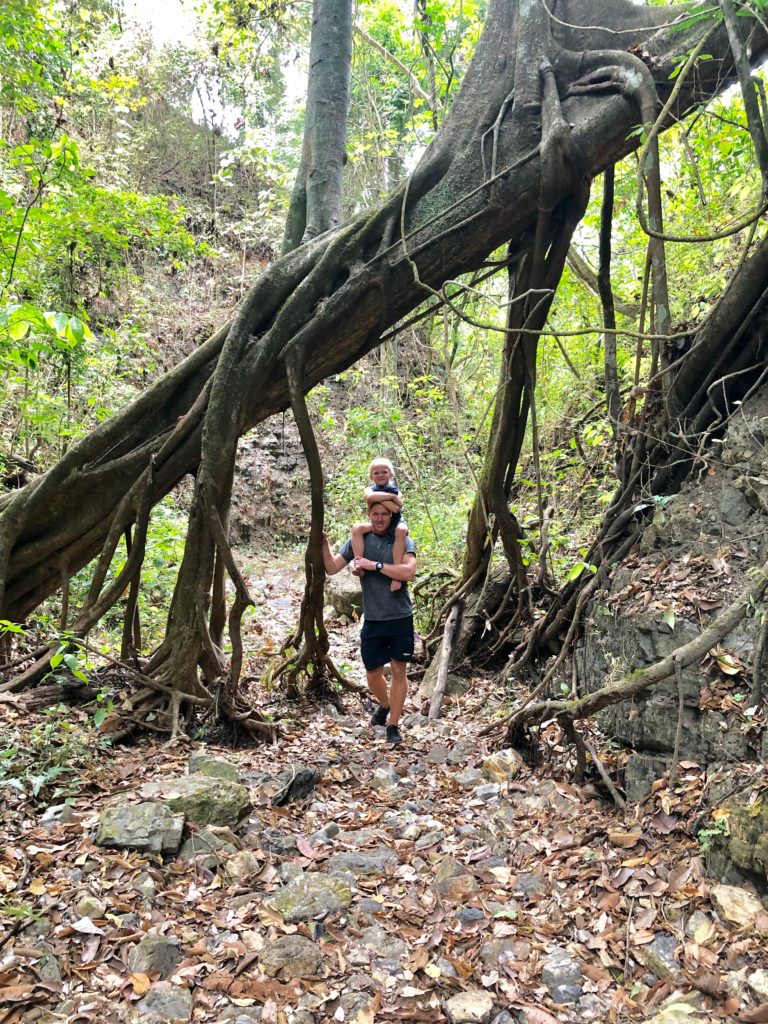
As we climbed higher and further into the forest, we passed torn yellow peligro (danger) tape on multiple occasions. The guide seemed to have his head down every time we’d pass, and I was beginning to think with each step that we were getting closer and closer to the point where I’d realize that I really should’ve heeded their advice and remained in camp, chanting and licking dirt. The most dangerous thing we ended up encountering, however, was a young couple who couldn’t stop sticking their tongues in each other’s mouths and staring way too intimately into each other’s eyes every time we would stop. You were both probably scarred from the experience. I know I was. There are some things you just can’t unsee.
The view from the top was a pretty vista of the tree covered hills and city and mangroves below. We swung from vines and saw a monkey along the way. It was definitely a trip worth taking. The most amazing part was that we made it out with our lives. It was touch and go for a while there.
Where we went:
Cerro Blanco is a protected forest in a reserve of 6.078 hectares within a tropical dry forest in Guayaquil, Ecuador. This forest is home to 54 mammal species, 221 bird species, 8 amphibians species, and 12 reptiles. There are more than 700 plant species. You can camp & take guided hikes here. We signed up for a family camping adventure, but you can go on your own. Cost is $6 per person to enter and an English guide costs and additional $35.
You will need to make reservations a day before going to the park; fundacionprobosque@gmail.com
What to bring:
Sunscreen, bug spray, hat, small backpack, and plenty of water and snacks.
If you do camp it’s best to bring your own camping equipment, but there were many people who rented from the organization.
Do we recommend?
If you are staying in Guayaquil this is a fantastic forest that if you are lucky could see howler monkeys, sloths, and amazing birds. We didn’t see any of these during our time, but it was still an experience and many other beautiful trees and plants.
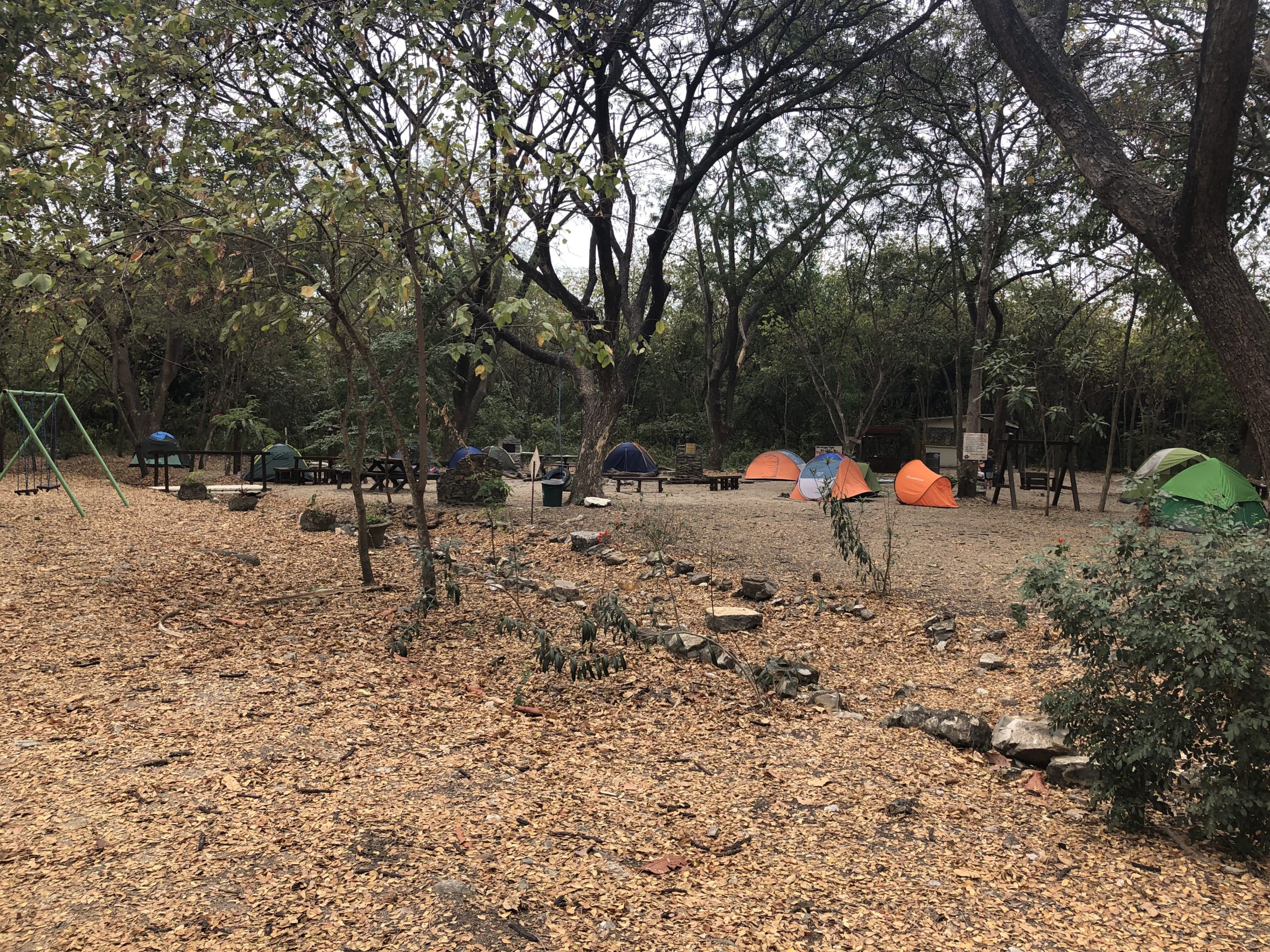
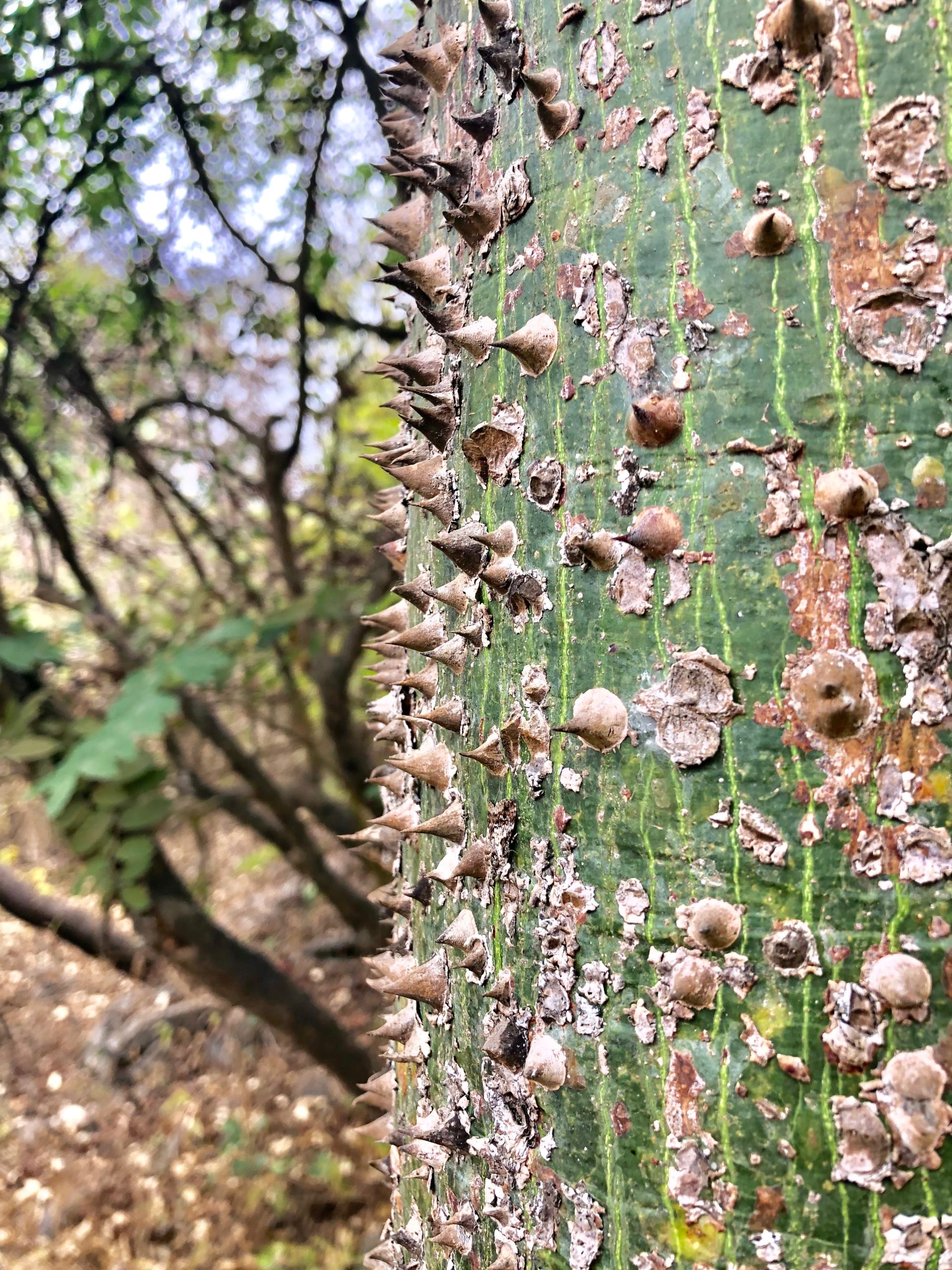
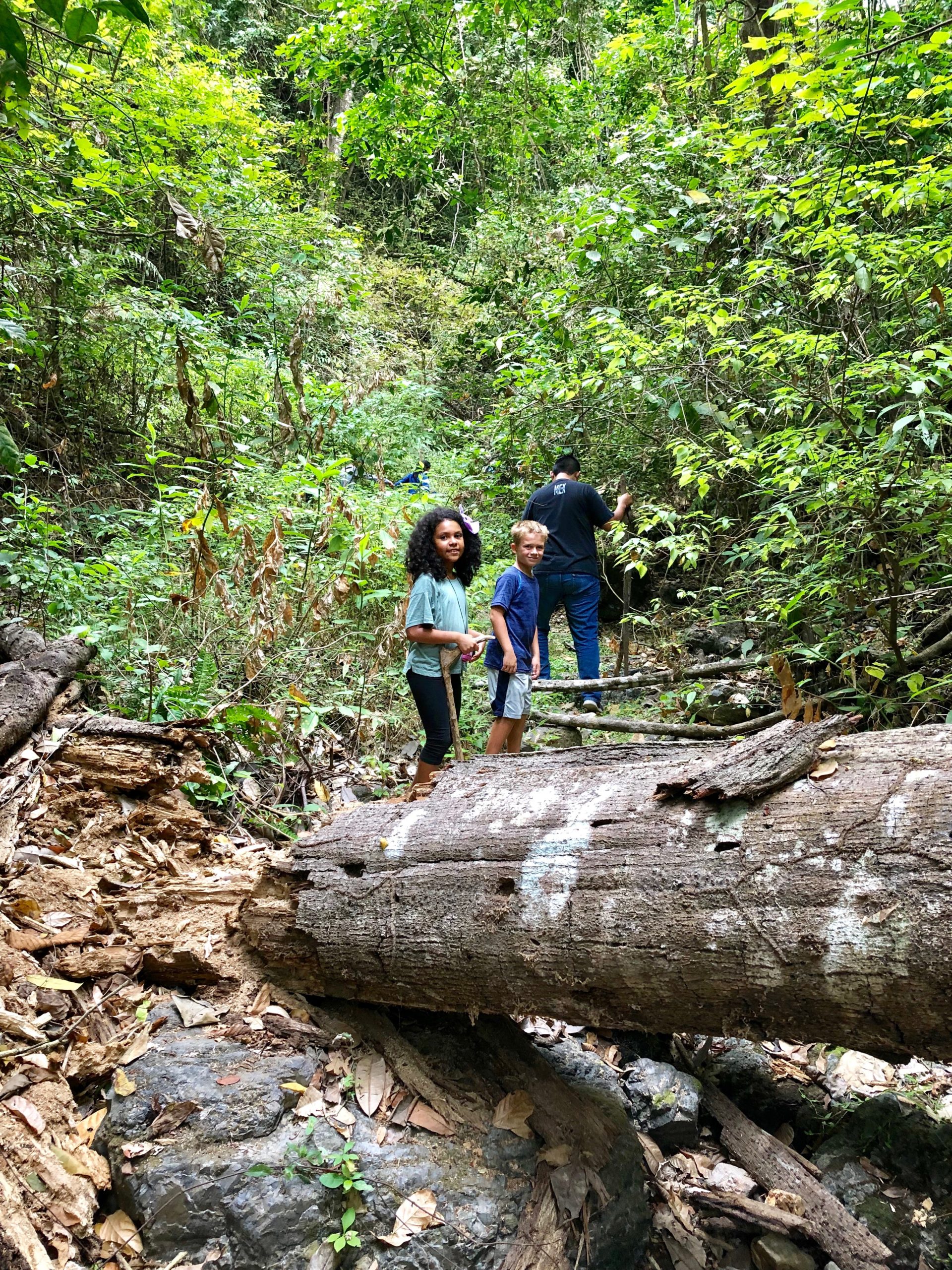
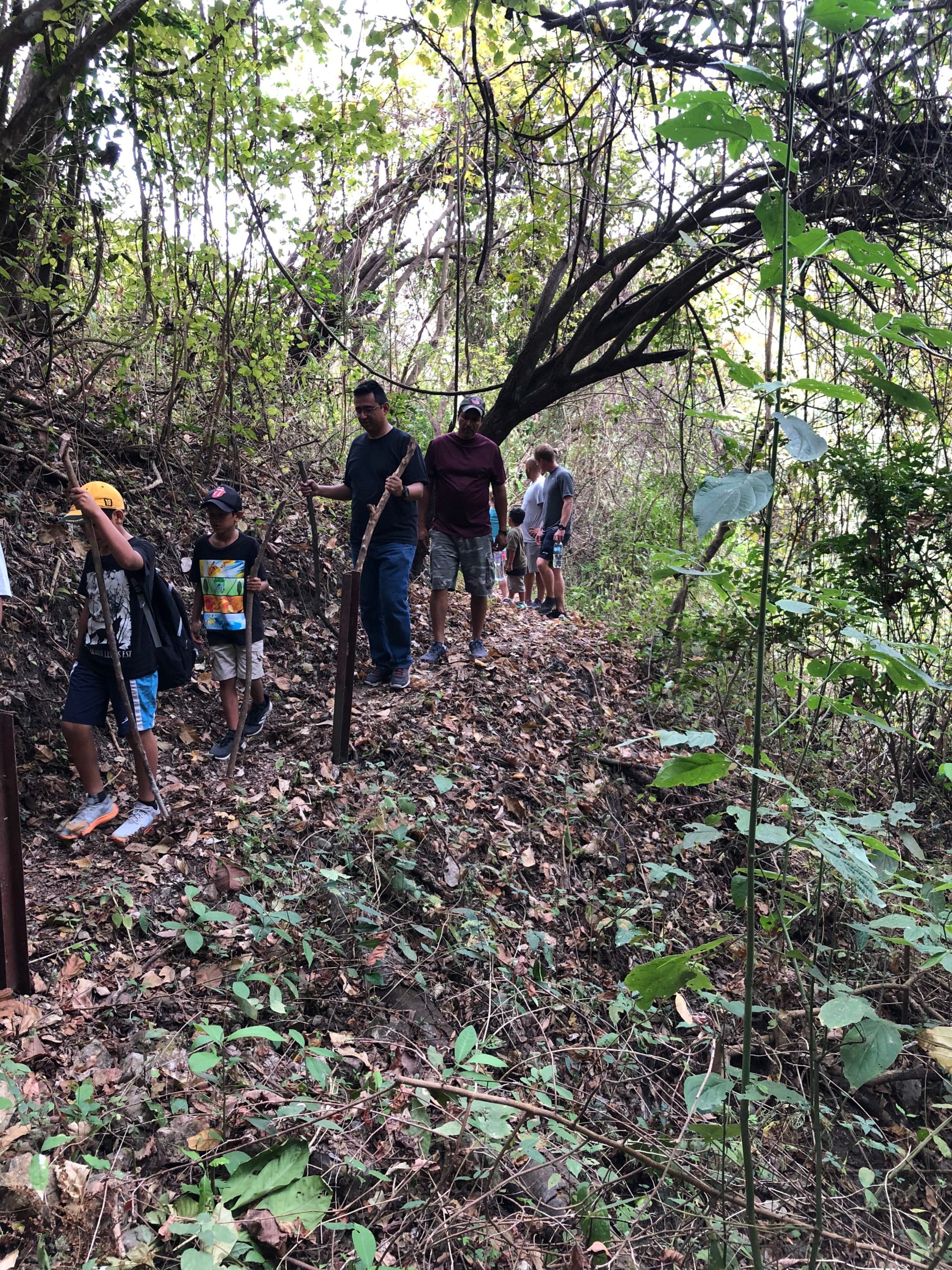
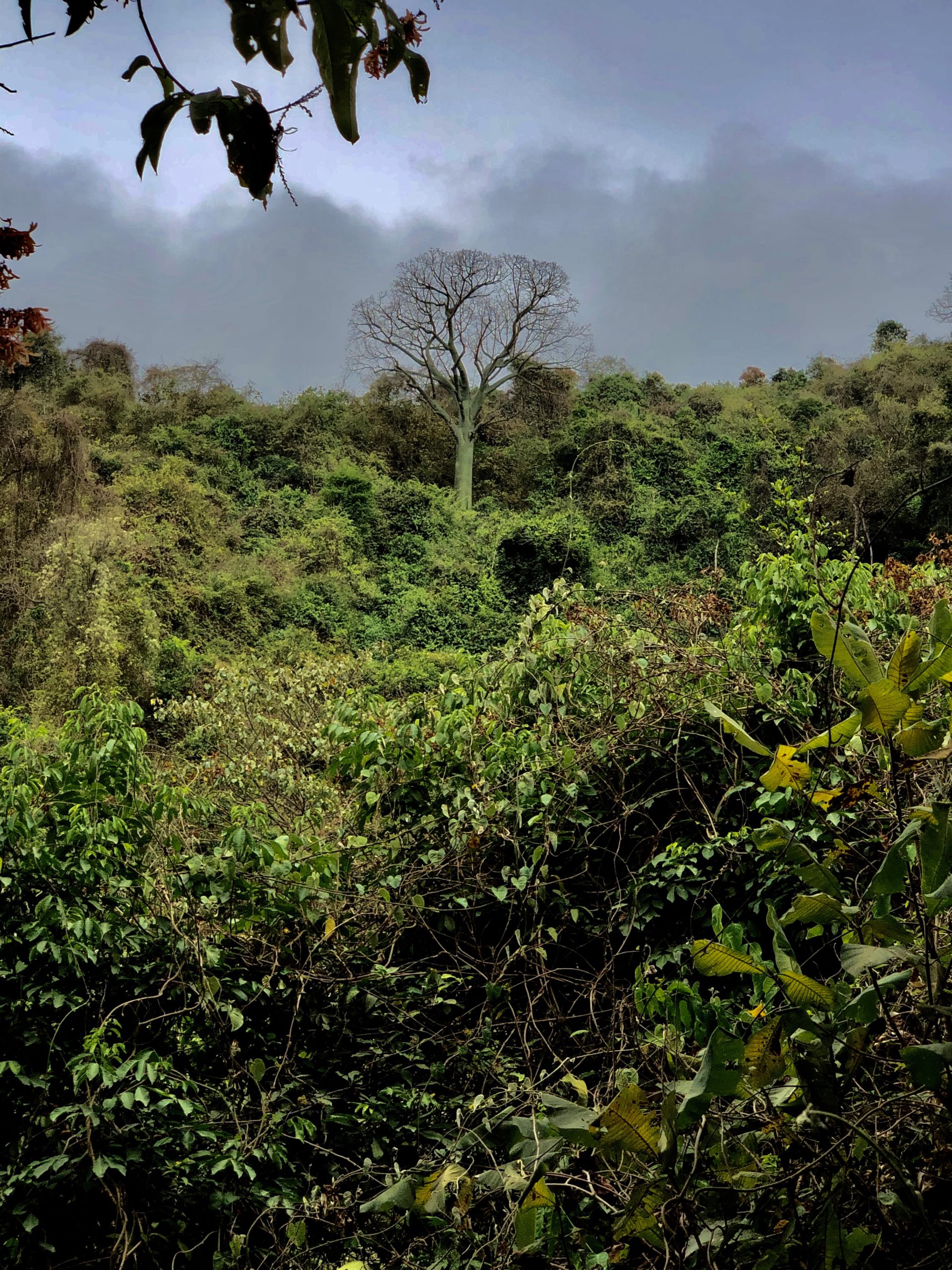
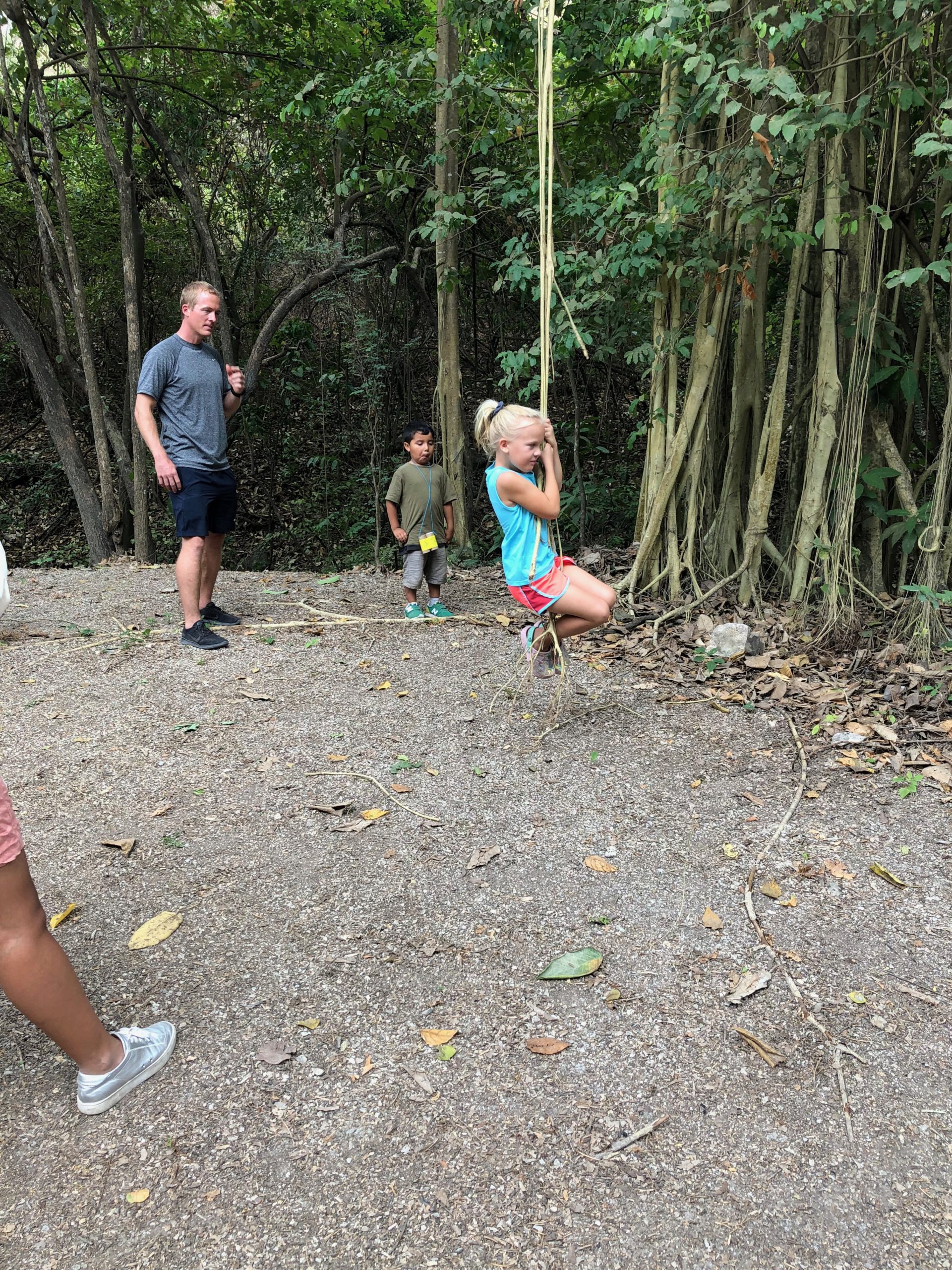
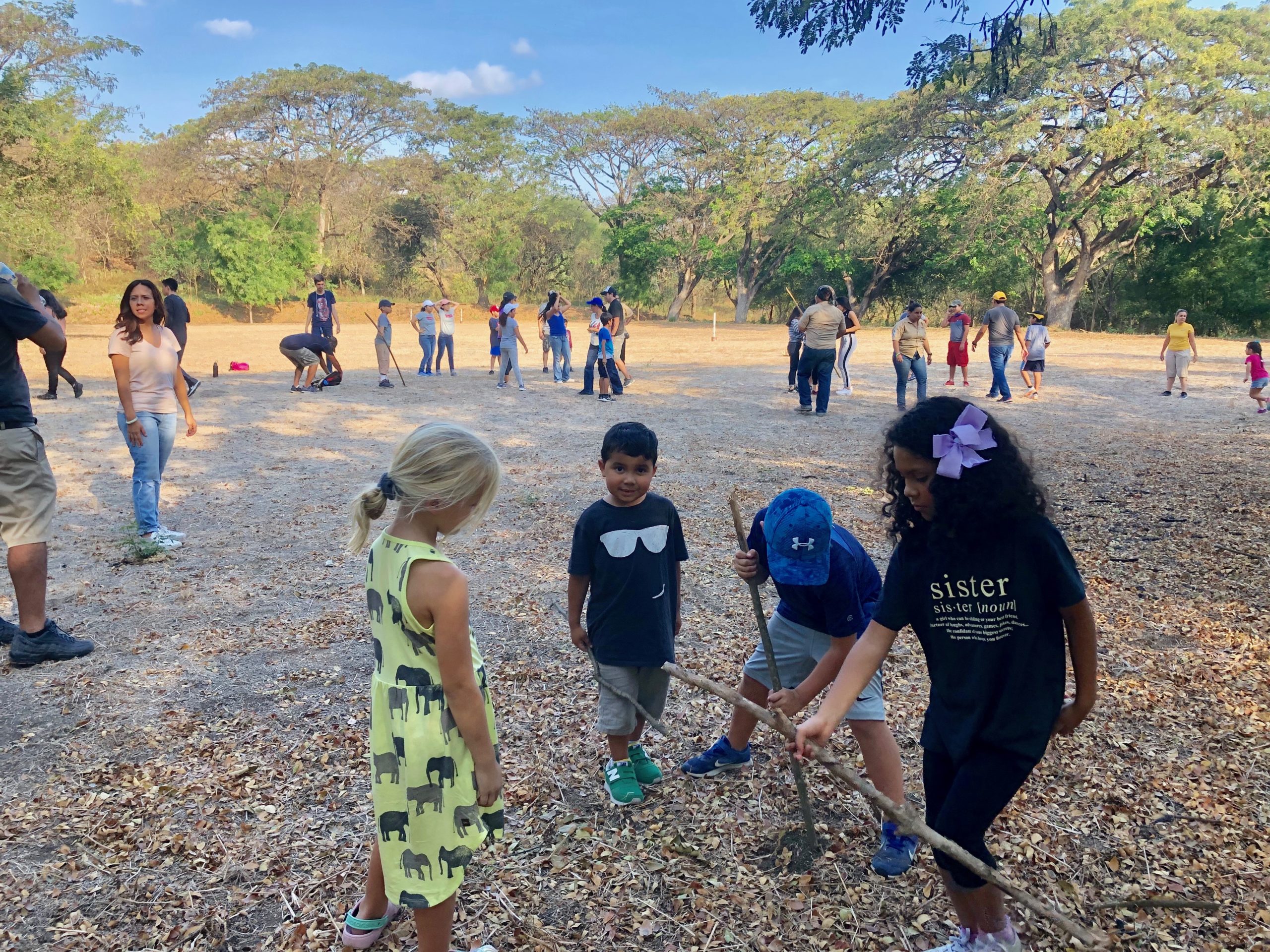
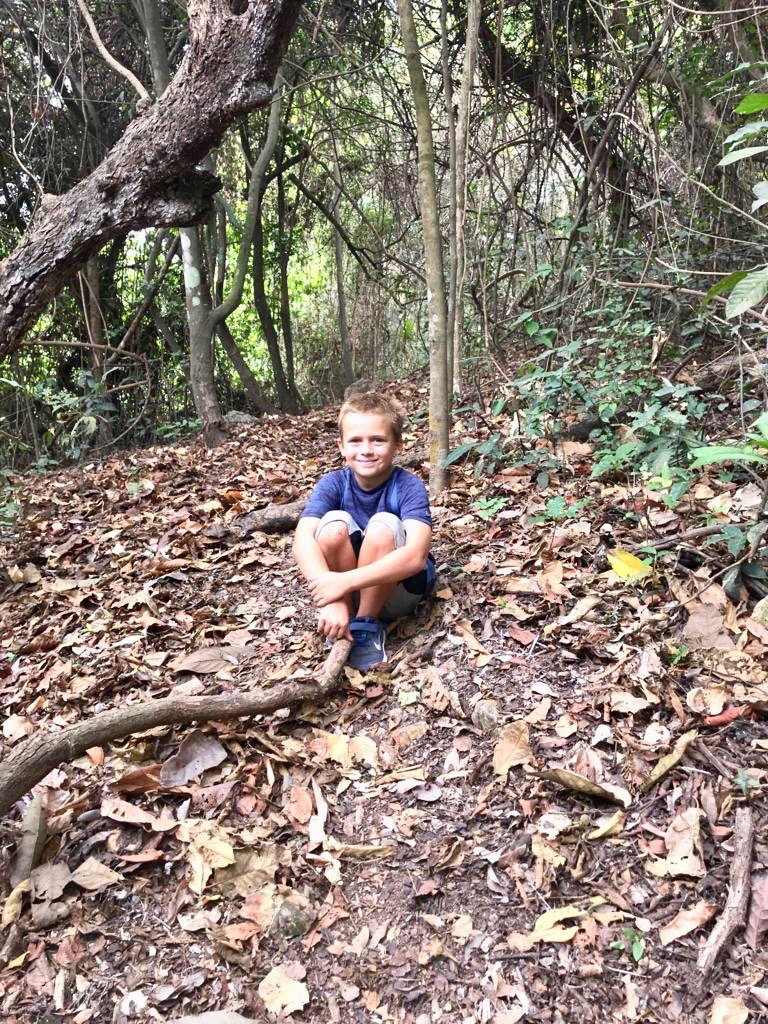
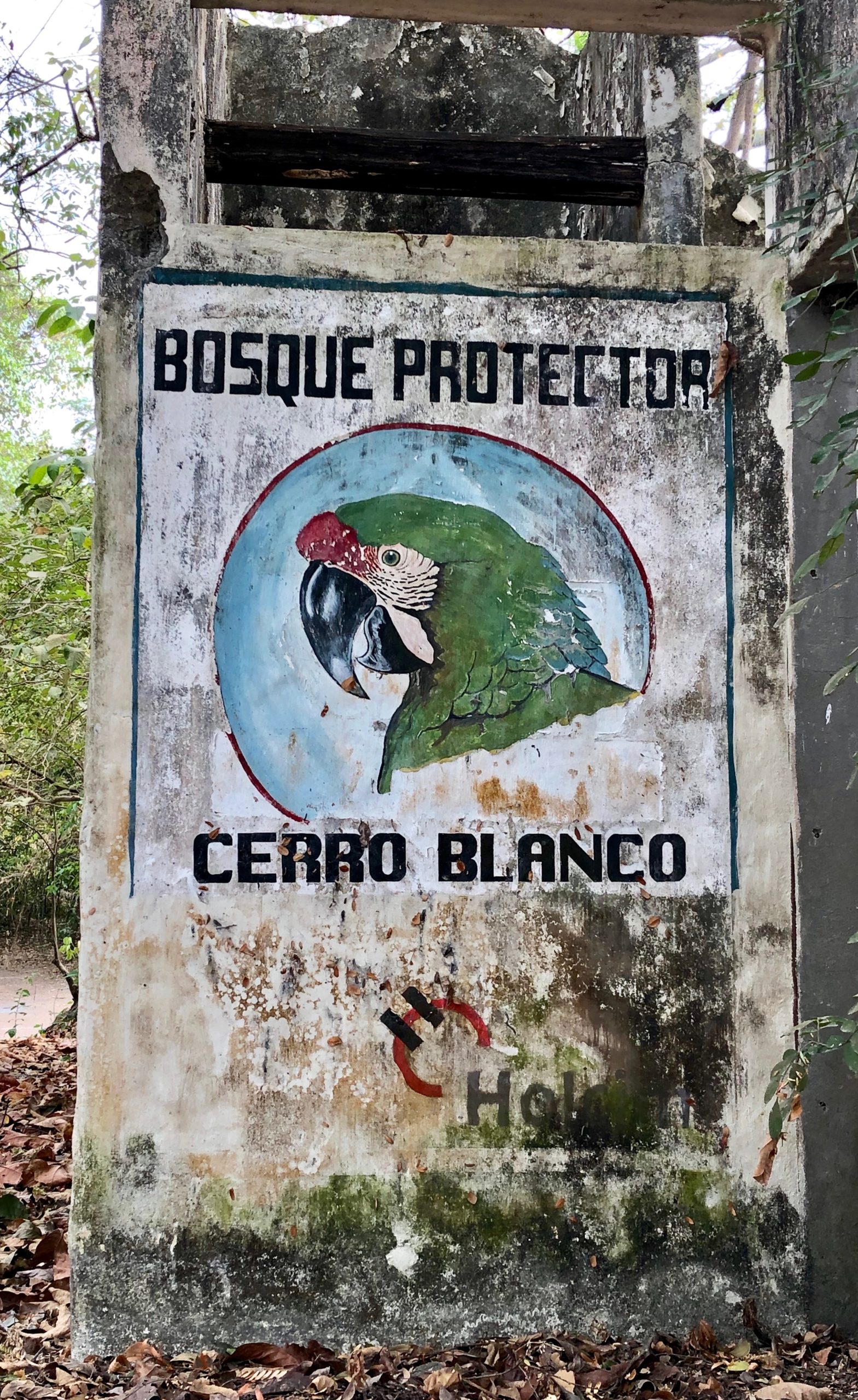
you said: